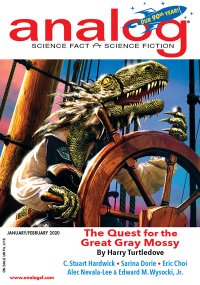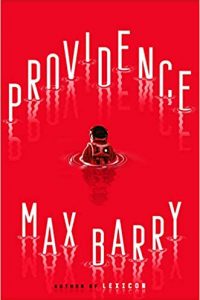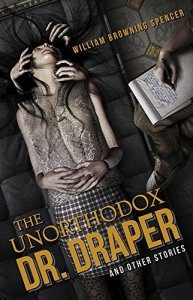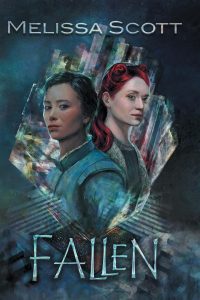Rich Horton Reviews Short Fiction: Asimov’s, Analog, LCRW, and On Spec
 Asimov’s 1-2/20
Asimov’s 1-2/20
Analog 1-2/20
Lady Churchill’s Rosebud Wristlet 11/19
On Spec #112
The first 2020 issue of Asimov’s is anchored by two novellas – the latest episode of Allen M. Steele‘s series about a human colony on a planet of Tau Ceti and the colonists’ interaction with the doglike intelligent species that controls the planet, “The Palace of Dancing Dogs” – these are enjoyable somewhat old-fashioned adventures – and “Not This Tide“, by Sheila Finch, which tells of the effects of events in late 1944 on anti-aircraft gunner Harry Forrest and his young daughter, and the attempts by mysterious visitors to influence the two to work for a better future, hinted at in some scenes set in 2035. But the issue really shines with some short fiction.
“GO. NOW. FIX.” by Timons Esaias is a pretty gripping story of a mildly intelligent pillow (of all things) going above and beyond its programming – while staying within its programming! – to save as many people as possible during an aircraft emergency. Exciting and moving, even if there really isn’t a whole lot new here. Jean-Louis Trudel‘s “The Way to Compostela” is set on the Moon, within the Carousel, used to acclimate lunar residents to Earth gravity before they return there. Indrek Kelm is a simulationist – a scientist who uses models of physical laws to test ideas about, in his case, possible interstellar travel. His latest promising results have made him a target – partly because of the curious funding model for scientific work in this future – and he must flee to Earth. On the Carousel he meets Valory, a dancer who can’t return to Earth, but who does have use for the Carousel’s gravity gradients. Indrek is still in danger, though, even as he and Valory seem to be falling for each other. Is there a way for him to stay? Or will he even survive his time in the Carousel? Interesting speculation and a nice personal story.
The best story this issue is “The Antidote“, by Dominica Phetteplace. The protagonist is a dancer who can’t compete with the richer dancers who have genetic and other modifications to enhance their ability. She takes a job at the Antidote, which offers tailored drugs for those who can afford them – drugs that at least improve your mental state. And then she’s approached by a man who want to use her to help him steal the Antidote’s secrets, and make them available for anyone. The story works best when Phetteplace gets her comical/satirical mode going full blast – it’s very funny, and quite intelligent as well; and if the primary plot doesn’t quite match the overall telling, it’s still effective.
In the first 2020 issue of Analog I enjoyed Joel Richards‘ “Q-Ship Militant“, which tells of an intelligent spaceship, one of many who have rebelled against human control. Militant has recruited some sympathetic humans, and is acting as a Q-Ship – a decoy – in an attempt to foil a “slaver” who is capturing ships and wiping their minds, in order to return the ship itself to service. The story itself is solid space action, not really surprising, but fun, and there is some worthwhile examination of AI rights. Another angle on AI rights comes from Richard Lovett, in “Guns Don’t Kill“, which suggests a way that smart guns might work… we seem to see them preventing a poacher from taking a deer out of season – but of course there are other “prey” killed by guns – for good reasons sometimes, perhaps? But what would AI think about that? Lovett is consistently interested in working out the second- and third-order effects of his speculative ideas.
Another story that frankly both fascinated and frustrated me is “Wheel of Echoes” by Sean McMullen. A university student with acting experience is recruited to work on a Shakespeare documentary along with a Shakespeare expert at her university. They hear some recordings of the “Alas, poor Yorick” soliloquy, and are taken by one strange American-sounding one. You might be ahead of me – it turns out this is Shakespeare himself, recorded on a clay disk. (A notion that I first encountered over 40 years ago, in Gregory Benford’s “Time Shards”.) The idea is very cool, but the development annoying, suggesting that a short recording of Shakespeare (by most accounts, a mediocre actor), speaking early 17th-century English, recorded on a primitive medium, would totally destroy all contemporary traditions of performance.
Lady Churchill’s Rosebud Wristlet reaches 40 issues in November 2019! I eagerly look forward to each issue. This latest includes “Ink, and Breath, and Spring” by Frances Rowat, a lovely, mysterious, and sad story, set in an odd, isolated, library. (Where? We don’t know.) Palwick, a groundskeeper, finds a flensed corpse in the garden one cold spring. Who was it? Nobody knows. What happened? Nobody knows. Palwick, one way or another, with the uncertain help of a new person at the library, Essa, stumbles about and eventually happens across some sort of answer. The milieu is described just enough and not too much – the collections in the library, the sometimes surly scholars, an interested bird, the odd pages, who may or may not “still be people,” and the hints of magic. The resolution is honest, not heroic, and sad, as I said. The telling is balanced and almost musical. And Palwick – a servant, not a scholar, not an outsider, not an administrator – provides just the proper viewpoint.
I also liked “Sibling Rivalry” by Michael Byers, set in a future with a one-child limit in which people also raise “synths” – synthetic AI children. Of course, to people such as Peter and Julie, who have a synth child named Melissa, the synths are real children – and why not? And of course they face prejudice. So far, so standard. But the story turns odd, with hints of other synthetic humans called “Supers,” and suggestions that the suburban enclave the characters inhabit is somehow not quite normal. Then Melissa’s teacher mentions some conflict she is having with a “biological” boy. The strangeness – and scariness – mounts very nicely. Finally, I should mention “The Giant Jew” by Fred Nadis, an amusing and pointed vignette about just what the title says.
On Spec closed 2019 with issue #112. No story quite stood out for me this time. I did enjoy “The Door Not Taken” by Tyler Goodier, in which the elderly Duchesse Ikkila and her faithful maid Bratati find a door in their manor labelled “Forbidden” – so naturally they must pass through it, and face down the dangerous imps, and come to terms with something special from the Duchesse’s past, involving her difficult marriage and her true love… Nice work. So too is Chadwick Ginther‘s “Cheating the Devil at Solitaire“, about the black sheep of a Mennonite family in Western Canada, come home after a long time to help his uncle with an important card game – and, it turns out, to start passing a torch of sorts to a young cousin. It’s one of those stories where not a ton obvious happens – what’s good here is the characters and the grounded believability of the telling.
Recommended Stories
“Sibling Rivalry”, Michael Byers (Lady Churchill’s Rosebud Wristlet 12/19)
“Guns Don’t Kill”, Richard Lovett (Analog 1-2/20)
“The Antidote”, Dominica Phetteplace (Asimov’s 1-2/20)
“Q-Ship Militant”, Joel Richards (Analog 1-2/20)
“Ink, and Breath, and Spring”, Frances Rowat (Lady Churchill’s Rosebud Wristlet 12/19)
“The Way to Compostela”, Jean-Louis Trudel (Asimov’s 1-2/20)
Rich Horton works for a major aerospace company in St. Louis MO. He has published over a dozen anthologies, including the yearly series The Year’s Best Science Fiction and Fantasy from Prime Books, and he is the Reprint Editor for Lightspeed Magazine. He contributes articles and reviews on SF and SF history to numerous publications.
This review and more like it in the February 2020 issue of Locus.
 While you are here, please take a moment to support Locus with a one-time or recurring donation. We rely on reader donations to keep the magazine and site going, and would like to keep the site paywall free, but WE NEED YOUR FINANCIAL SUPPORT to continue quality coverage of the science fiction and fantasy field.
While you are here, please take a moment to support Locus with a one-time or recurring donation. We rely on reader donations to keep the magazine and site going, and would like to keep the site paywall free, but WE NEED YOUR FINANCIAL SUPPORT to continue quality coverage of the science fiction and fantasy field.








I found “An Alien on Crete” (Neal Asher) (not mentioned above) the best story, and only one I rated 4-stars in the JAN 2020 ASIMOVS. Thanks for your reviews, Rich.
Could you provide me with references for your claim concerning Shakespeare’s mediocrity as an actor? I’m not aware of any first-hand evaluative accounts of his stage presence, even after reading several biographies and other material over the years. There have been guesses and speculation, of course, but no documentation that I’ve seen (Robert Greene’s contemporary but rather insulting [and no doubt envy-inspired] indirect reference notwithstanding). Certainly he was inferior to others such as Burbage, but then so were most actors at that time and place. Anyway, I’ve always wondered what sort of an actor he was, which is why your statement intrigued me.